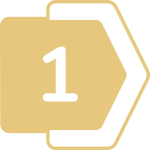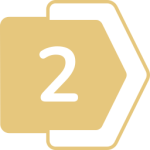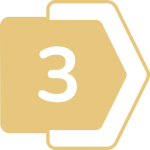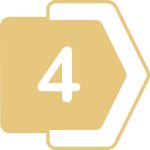Our
Methodology
A comprehensive evaluation framework that ensures the selection of the world’s most exceptional SEO companies
Our methodology is designed to reward SEO that creates durable, verifiable business impact.
Every entry is scored against a published rubric, supported by traceable evidence (analytics exports, Search Console data, dated screenshots, and client references).
To keep the playing field level, we normalize results by market context and baseline health, then run a calibration round with independent judges before confirming winners.

Evidence Intake

Technical Evaluation

Performance Evaluation

Normalization & Calibration
Evaluation pillars and weights
Performance Metrics (40%)
- Organic traffic growth percentage
- Keyword ranking improvements
- Revenue attribution to SEO efforts
- Core Web Vitals optimization
- Conversion rate improvements
Innovation & Strategy (25%)
- Use of AI and machine learning
- Proprietary tools and methodologies
- Voice search optimization
- Mobile-first strategies
- Emerging technology adoption
Client Results & Satisfaction (25%)
- Client retention rates
- Testimonials and case studies
- Project completion timelines
- Communication effectiveness
- Post-project support quality
Documentation & Transparency (10%)
- Detailed case study presentation
- Methodology transparency
- Regular reporting practices
- Data accuracy and verification
- Industry best practices adherence
Submission Requirements
Required Documentation
- Company Profile
Comprehensive overview including team size, specializations, years in business, and geographic reach
- Performance Data
Verified metrics showing SEO performance improvements across multiple client projects
- Case Studies
Detailed documentation of 3-5 successful projects with before/after results and methodologies
- Client Testimonials
Verified testimonials from current and past clients with contact information for reference checks
Key Success Factors
Quantifiable Results
Provide specific, measurable improvements in key SEO metrics
• Traffic growth percentages with timeframes
• Ranking improvements for competitive keywords
• Revenue attribution to SEO efforts
• Technical SEO improvements (Page Speed, Core Web Vitals)
Innovation Showcase
Demonstrate unique approaches and cutting-edge strategies
• Proprietary tools or methodologies developed
• AI/ML implementations in SEO processes
• Innovative content strategies
• Advanced technical implementations
Client Impact
Show how your work directly impacted client business outcomes
• Business growth attributed to SEO efforts
• Long-term client relationships and retention
• Client satisfaction scores and feedback
• Award recognitions from clients
faq
What exactly defines technical excellence in SEO Elite Awards evaluation process?
Technical excellence means demonstrating structural, performance, and governance mastery, all backed by verifiable data and measurable results.
We look at:
• Architecture & crawl control – clean taxonomies, optimal indexation, and robust handling of faceted navigation so that search engines can discover and understand content efficiently.
• Rendering & performance – modern JavaScript strategies (SSR/ISR when appropriate), consistent Core Web Vitals, and proactive error-budget management to avoid regressions.
• Data integrity & structured signals – precise schema markup, healthy feeds, and server-log validation that confirm correct bot access and indexing.
• Governance & monitoring – documented change-management, automated alerts, and clear rollback procedures to keep the site stable under continuous updates.
Higher scores are granted when technical decisions directly translate into measurable SEO or business gains—for example, Core Web Vitals improvements that lifted rankings or conversions—and when clear safeguards prevent future regressions.
How do you reward innovation and the use of AI while ensuring that no unsafe or manipulative tactics are promoted?
Innovation earns points only when it is safe, transparent, and rigorously tested.
Judges look for:
• Clear problem definition and hypothesis – showing why a new approach was needed.
• Controlled experimentation – proof of testing, iteration, and validation (A/B tests, pilots).
• Risk management – strong quality gates, human review of outputs, deduplication systems, and toxicity/privacy checks.
AI must enhance efficiency, personalization, or insights without breaching user privacy, intellectual property, or search-engine guidelines. Link acquisition must remain editorial and transparent, avoiding private networks, paid schemes, or cloaked outreach.
The best entries show a documented learning loop (test → measure → refine) and evidence of scaling responsibly, proving that creativity and compliance can coexist.
How do you guarantee that the judging process is fair for participants from different regions, industries, and resource levels?
Fairness is built into the evaluation framework:
• Blind first-round review – where feasible, judges do not see agency or brand identities, and any potential conflict of interest leads to recusal.
• Context-based normalization – scores are adjusted for market maturity, competition intensity, and resource constraints so that a small startup can compete with a global enterprise on equal footing.
• Segment-specific benchmarking – entries are compared within similar categories (B2B vs. B2C, marketplace vs. publisher) to ensure apples-to-apples evaluation.
• Calibration and consensus – judges align on a shared rubric and scoring model before finalizing winners.
This multi-layer process ensures that evidence and execution outweigh sheer brand size or budget, allowing exceptional work from any market or team size to be recognized.
When do submissions for SEO Elite Awards open and close?
Each annual edition follows a published timeline to give teams enough time to prepare strong entries.
• Opening date – The call for entries is announced on our official website and newsletter, typically in early Q2 (exact dates confirmed each year).
• Submission window – Remains open for several weeks to accommodate different time zones and team schedules.
• Closing date – Clearly stated in the call for entries; late submissions are not accepted to ensure fairness.
• Evaluation and results – After the deadline, judges review entries, and finalists and winners are announced according to the calendar on our site.
We recommend subscribing to the SEO Elite Awards newsletter or checking the official site regularly so you don’t miss key deadlines.
